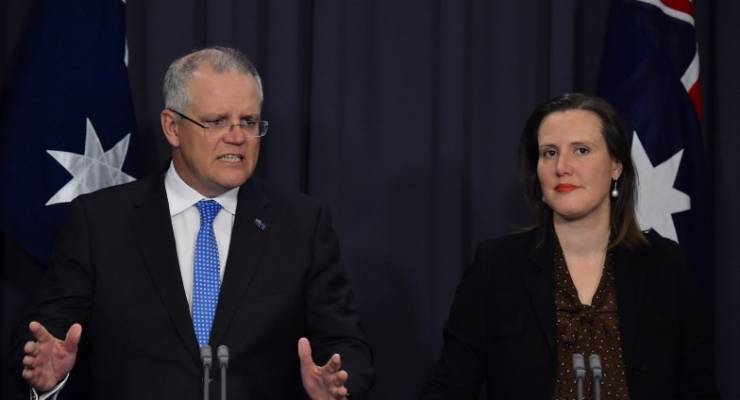
Australia’s long-running superannuation wars are finished. They’ve ended in a comprehensive victory for industry superannuation funds, run by employer groups and trade unions, over retail funds, run by the big banks and AMP. And it was the Liberal Party that delivered the most ferocious blow to the sector it had sworn to protect. Not just once, but twice.
It should go down as one of the most spectacular own-goals in Australian political history. But at the moment, it’s just one of a litany of failures in the ongoing meltdown of the Liberals.
It’s worth quickly recounting the many ways that the Liberal Party went after industry super over the last ten years before they ended up handing it victory.
- Opposed Labor’s Future of Financial Advice laws, designed to (partly) clean up the hopelessly conflicted and corrupted financial advice industry, allowing the crossbenches to water down Labor’s laws.
- Tried to repeal FOFA once in government.
- Pushed the now-discredited Trade Union Royal Commission to go after industry super funds, without result.
- Regularly demeaned “union run” industry funds as “venal”; “a gravy train for union officials” (Tony Abbott); “have union members and whatnot on the board … all sorts of support for unions” (Peter Dutton); and are guilty of “brazen” misuse of funds for “minority interests skewing our public policy debate” (Liberal Party website).
- Introduced legislation to force industry super funds to take on more independent directors, making them operate more like retail super funds.
- Senior Liberal official Andrew Bragg ran a campaign from the Business Council of Australia attacking industry super, while Michaelia Cash ran a similar campaign using News Corp, both focusing on claims that funds improperly handed money to unions.
Through it all, the industry funds boxed clever. Industry Superannuation Australia, the sector’s peak body led until recently by David Whiteley, kept up a steady stream of performance data that hammered the one point the Liberals, the big banks and AMP could never dismiss, that industry super massively outperformed retail super.
They worked with crossbenches on legislation where they could, heading off the independent directors bill (recently abandoned by the government) and ran cut-through marketing campaigns like the “fox in the henhouse” ads that had retail super and its media advocates crying, well, foul.
A year ago you would have called it a draw: the Liberals had failed to seriously damage industry super but the sector had been forced to circle the wagons and fend off attack after attack. Then two Liberal tactics backfired spectacularly.
The issue of default super is a complicated one with a complicated history, with errors and misjudgments by most participants, including then-employment minister Bill Shorten, the retail super lobby group Financial Services Council and Eric Abetz. But crucially, the Turnbull government referred the issue to the Productivity Commission in 2016, in effect asking the PC to produce a mechanism for ending the legacy-based dominance of industry super and AMP funds as default super in industrial awards.
The Liberals hoped they could establish a new system of default super fund allocation within the industrial relation system in which retail funds could get access to the vast amounts of super flowing into default accounts of workers who had moved or started jobs and done nothing about their super.
But then the PC reported in draft form in May, and it was a disaster for retail super: the hardheads of the PC reported that non-profit funds outperformed for-profit funds by nearly two percentage points. The massive outperformance of industry super was no longer merely the stuff of ISA reports and the occasional finance section media article, but independently verified. The then-financial services minister Kelly O’Dwyer managed to draw everyone’s attention to the finding when she repeatedly refused to answer questions about it.
If that was humiliating for both the government and the retail sector — not to mention the many retail super advocates who tried to explain away the report — a decision the Liberals had made five months earlier was all the while ticking like a timebomb, and when it went off would inflict terminal damage on bank-run super.
Next: the smart play that brought on retail super’s destruction.








It’s time to outlaw Banks and AMP making political donations, and barring jobs in that industry to ex politicians.
Include the mining sector in that and I’m in.
The mining sector is to the planet what the asbestos industry was to the individual.
I’d go to all private donations. There are always loopholes.
That will never happen. The corporate world and the liberal party know that the best way to corrupt a politician is to have a sinecure job waiting.
If you have O’Dwyer defending your position you are starting off behind.
Killed is probably a strong term.
I mean, the retail funds still exist and have billions under management.
Still, at least the campaign against industry super funds is dead in the water; the Liberals’ latest ideology driven crusade is dead in the water and I’m still waiting for the day that any journalist specifically calls them out for this ideology-over-evidence approach (mostly because of the lack of journalistic pushback when Turnbull used to claim Labor was doing that, on energy for example. The Liberal Party accusing anyone else of being ideological on energy should have had Turnbull laughed out of the room instead of treated as a serious, thoughtful politician, but I digress).
And here’s me waiting with heavy anticipation for Kelly O’Dwyer to introduce a bill demanding that trade unionists be represented on a 1:1 basis on retail funds.
Droll, very droll.
And just to clarify, I’m with you all the way.
Ms O’Dwyer’s trenchant defence of retail funds and her virulent condemnation of industry funds will doubtless contribute to the challenges she faces in being re-elected in Higgins. Some may consider that she will get her just deserts if she isn’t returned to the House.
Then a prearranged job in the insurance industry.